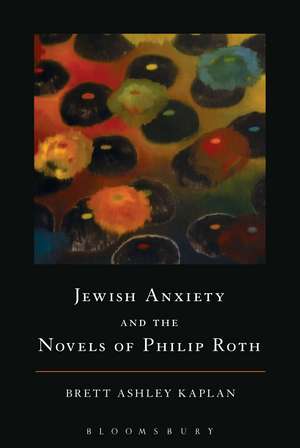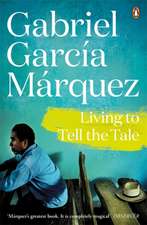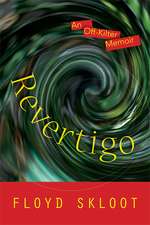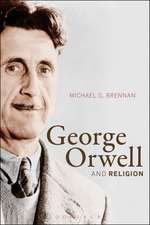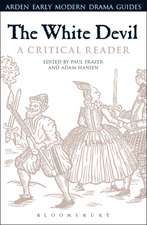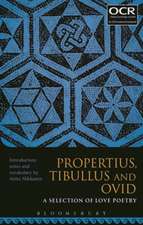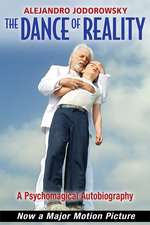Jewish Anxiety and the Novels of Philip Roth
Autor Brett Ashley Kaplanen Limba Engleză Paperback – 26 oct 2016
| Toate formatele și edițiile | Preț | Express |
|---|---|---|
| Paperback (1) | 256.12 lei 6-8 săpt. | |
| Bloomsbury Publishing – 26 oct 2016 | 256.12 lei 6-8 săpt. | |
| Hardback (1) | 772.65 lei 6-8 săpt. | |
| Bloomsbury Publishing – 22 apr 2015 | 772.65 lei 6-8 săpt. |
Preț: 256.12 lei
Preț vechi: 330.48 lei
-23% Nou
Puncte Express: 384
Preț estimativ în valută:
49.01€ • 53.40$ • 41.30£
49.01€ • 53.40$ • 41.30£
Carte tipărită la comandă
Livrare economică 23 aprilie-07 mai
Preluare comenzi: 021 569.72.76
Specificații
ISBN-13: 9781501324734
ISBN-10: 150132473X
Pagini: 216
Ilustrații: 3 halftones
Dimensiuni: 152 x 229 x 17 mm
Greutate: 0.3 kg
Ediția:NIPPOD
Editura: Bloomsbury Publishing
Colecția Bloomsbury Academic
Locul publicării:New York, United States
ISBN-10: 150132473X
Pagini: 216
Ilustrații: 3 halftones
Dimensiuni: 152 x 229 x 17 mm
Greutate: 0.3 kg
Ediția:NIPPOD
Editura: Bloomsbury Publishing
Colecția Bloomsbury Academic
Locul publicării:New York, United States
Caracteristici
Accessibly written in a way that will appeal to students, academics, and Roth enthusiasts
Notă biografică
Brett Ashley Kaplan is Professor and Conrad Humanities Scholar in the Program in Comparative and World Literature and the Program in Jewish Culture and Society at the University of Illinois, Urbana-Champaign, USA.
Cuprins
AcknowledgementsIntroductionChapter One: Jewish Anxiety: "Goodbye Columbus," "Eli, The Fanatic," and Portnoy's ComplaintChapter Two: Spectres of Roth: The Ghost Writer, Exit Ghost, and Zuckerman UnboundChapter Three: Double-Consciousness and the Jewish Heart of Darkness: The Counterlife and Operation Shylock Chapter Four: The American Berserk: Sabbath's Theater and American Pastoral Chapter Five: Playing it Any Way You Like: The Human StainChapter Six: Counterfactual Terror: The Plot Against AmericaConclusion: What we talk about when we talk about Anne FrankBibliographyIndex
Recenzii
In Jewish Anxiety and the Novels of Philip Roth, Brett Kaplan offers a timely reassessment of the notion of 'Jewish anxiety.' Roth's fiction, Kaplan brilliantly argues, exposes an essential contradiction in contemporary Jewish moral life, often displaced into his representations of race, gender, and sexuality. By moving beyond the conventional account of how Roth returns to the mid-century past-how the Jews Roth writes about are driven by fear that anti-Semitism may again victimize Jews as the millions were in the Holocaust-Kaplan engages Roth in ongoing history. She uncovers in his fiction an antithetical anxiety among Jews who confront how Jewish actions during the Israel-Palestine conflict may victimize others. Kaplan's exceptional historical insight enables her to discern in the politics of Roth's novels the manifold ways in which the contemporary Jew may experience moral ambivalence. Kaplan's book will change the way that readers think about Roth and the Jews.
This is a perceptive, perspicacious and provocative book that offers fresh, persuasive readings of many of Roth's key works. Kaplan has read widely and thought carefully about the tensions that animate Roth's work and her study will be very valuable to both scholars and students.
This engaging study of dual anxiety in Roth's work - linked to victimization and perpetration -- breaks new ground in its analysis of his fiction. Widening the complex nature of anxiety and linking it to race and history, Kaplan successfully shows Roth's strategies in facing the complex double bind of his characters.
Jewish Anxiety and the Novels of Philip Roth suggests that Roth's oeuvre shows the urgency needed to examine central social and cultural concerns such as race, gender, capitalism, terrorism, and genocide. These universal problems are tied up with unique individuals wrestling with an overwhelming anxiety of victimhood and perpetration. . How does Kaplan relate remembering to the heroism of Roth's characters that is expressed in almost psychotic rebelliousness against moving on? Does wrestling with the self and with acculturation create an option to remember and usher in a new form of historical relevance and responsibility? In relation to The Human Stain, Kaplan specifically writes that Roth develops a bleak vision and according to it our belonging to the world is disclosed by the stain: 'there is no hope for redemption or reconciliation. Roth thus demonstrates how we are all stained with the blood of our past and with the immobility of that past.
This is a perceptive, perspicacious and provocative book that offers fresh, persuasive readings of many of Roth's key works. Kaplan has read widely and thought carefully about the tensions that animate Roth's work and her study will be very valuable to both scholars and students.
This engaging study of dual anxiety in Roth's work - linked to victimization and perpetration -- breaks new ground in its analysis of his fiction. Widening the complex nature of anxiety and linking it to race and history, Kaplan successfully shows Roth's strategies in facing the complex double bind of his characters.
Jewish Anxiety and the Novels of Philip Roth suggests that Roth's oeuvre shows the urgency needed to examine central social and cultural concerns such as race, gender, capitalism, terrorism, and genocide. These universal problems are tied up with unique individuals wrestling with an overwhelming anxiety of victimhood and perpetration. . How does Kaplan relate remembering to the heroism of Roth's characters that is expressed in almost psychotic rebelliousness against moving on? Does wrestling with the self and with acculturation create an option to remember and usher in a new form of historical relevance and responsibility? In relation to The Human Stain, Kaplan specifically writes that Roth develops a bleak vision and according to it our belonging to the world is disclosed by the stain: 'there is no hope for redemption or reconciliation. Roth thus demonstrates how we are all stained with the blood of our past and with the immobility of that past.
